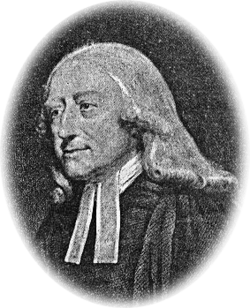| Part of a series on |
| Methodism |
|---|
 |
| |
In Methodism, a steward is a member of a local church who exercises leadership and holds responsibility for the practical life of the church. This role includes specific duties connected with weekly services and offerings. [1] They may be appointed by a pastor/minister or the congregation, depending on the denomination. [2] [3] The position of stewards is a hallmark of classic Methodism. [2]